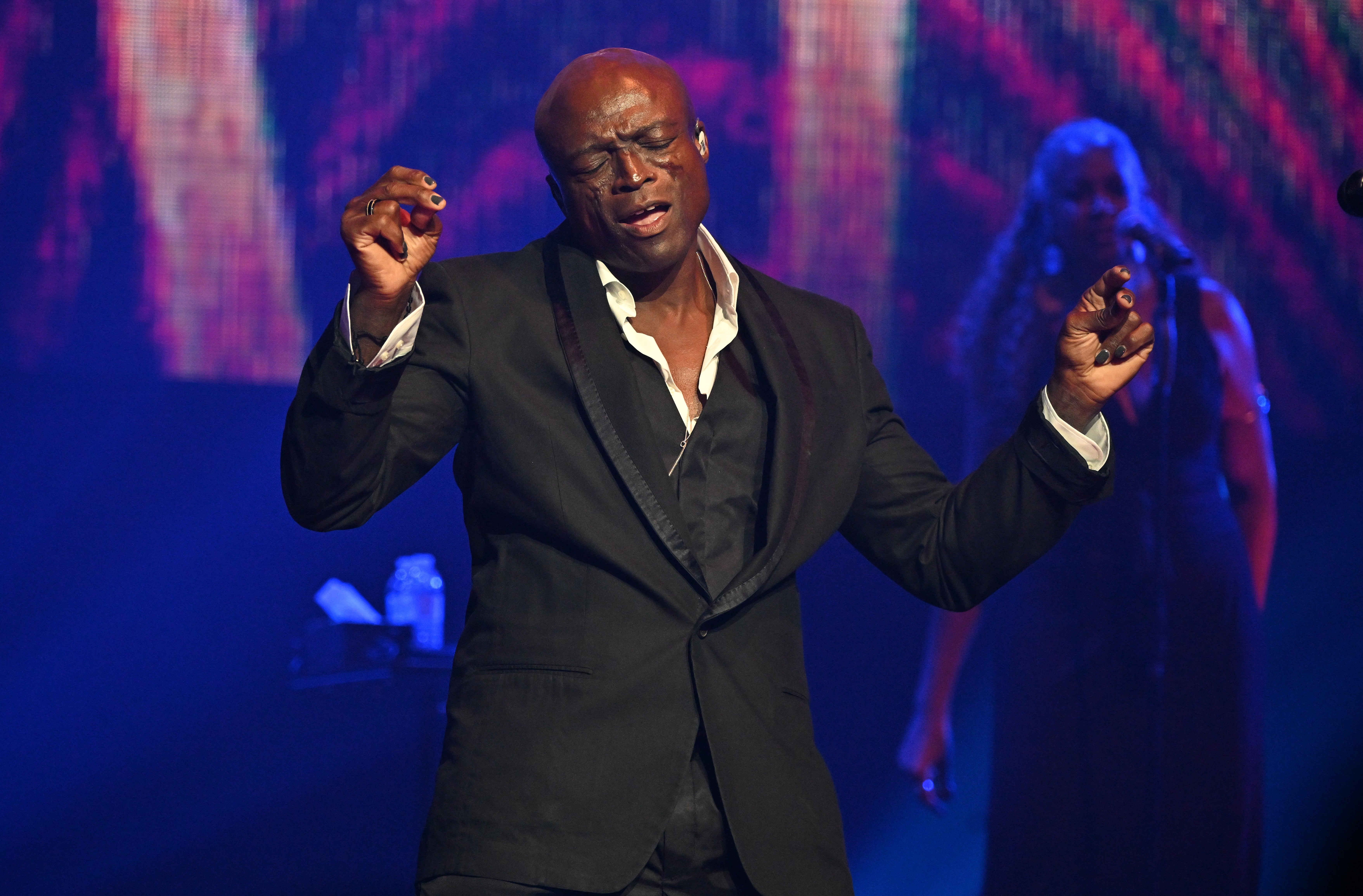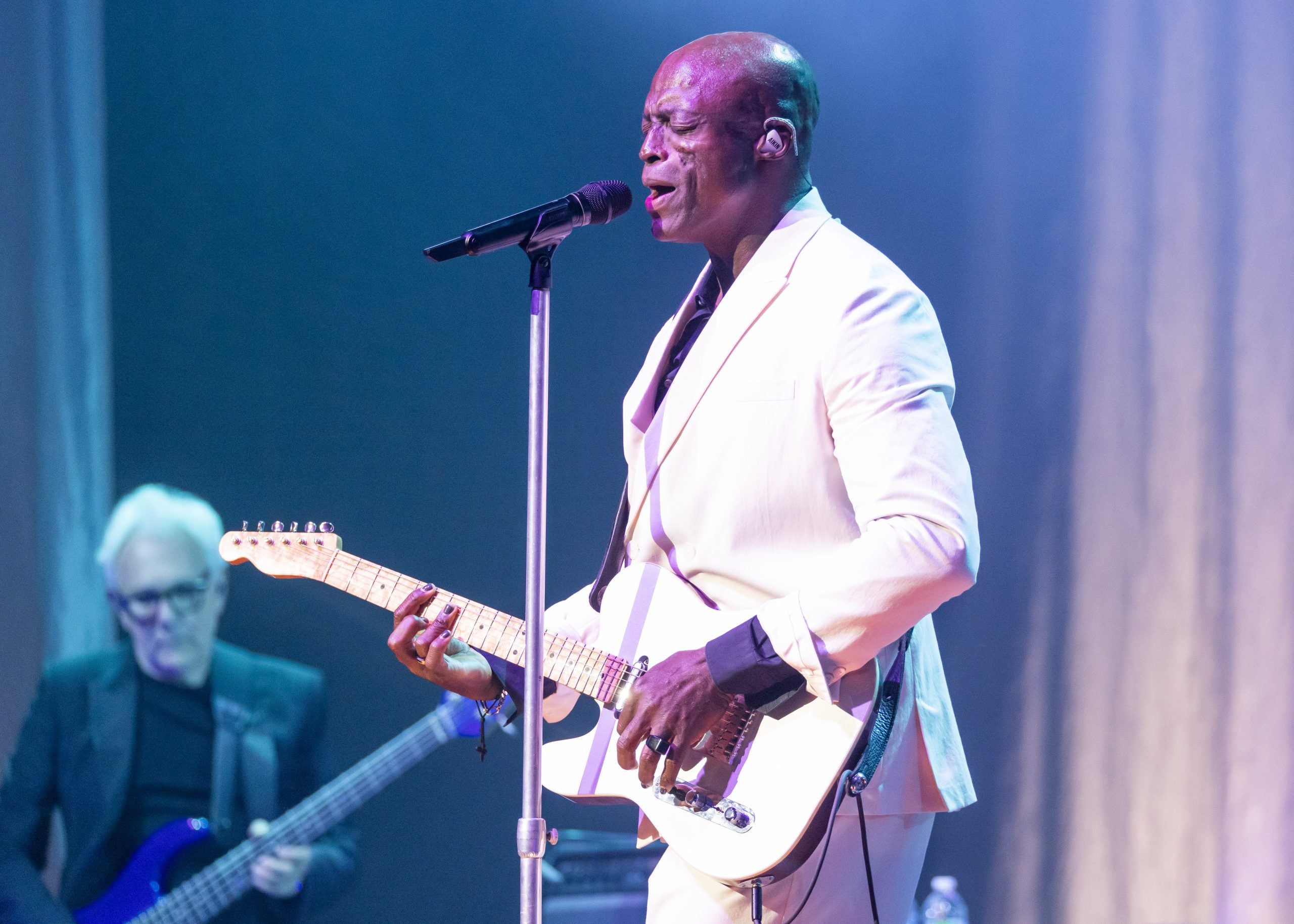
Four-time Grammy-winner Seal—currently touring the U.S., Canada and Europe to mark the 30th anniversary of his first albums, Seal (1991) and Seal Redux (1994)—has joined in tributes from around the world to legend Tina Turner.
Seal (born in London as Seal Henry Olusegun Olumide Adeola Samuel) collaborated with Turner—and covered her “We Don’t Need Another Hero” in 2016. During his show at New York City’s Beacon Theater on May 24th, hours after Turner’s passing had been announced, he addressed the crowd about the painful news. In true heart-on-his-sleeve Seal fashion, he didn’t say a few quick words and move on; instead, he took time to share his thoughts and feelings. “How does that even work?” he wondered aloud. “One minute they’re here, and the next minute—”
As a dear friend might, Seal bolstered fans with strength-giving personal insights. “I’ve got this theory,” he said. “The theory is—if you look all around you, what is the most recurring shape you see? A circle. Everywhere, circles. Circles in the lights. In this watch I forgot to take off! Circles in the moon, the sun. And so—what makes us feel that the essence of who we are is any different? Could it be that this is not the first, nor will it be the last, time that we’ve been? Could it be that we just go around and around—and those people we feel that we’ve lost, could it be that they just started again?”

“Like there’s no beginning, there’s no end,” he continued. “My belief, my understanding of how this works, is that life indeed just goes ’round and ’round and carries on. So if you feel you have lost someone—maybe they’re right beside you. With you. And every time you think of that person, every time you feel that person—that is actually the essence of that person, right there.”







Still, the singer is not one to cut corners in emotional processing. On a night when many fans, and he himself, felt bereft, he fully acknowledged that fact. “If you feel sad, then this is for you—and for me,” he said quietly, before diving into his 1994 devotional “Prayer for the Dying” (“There is a light through that window…’cause life carries on/It goes on”).

Later in the set, Seal introduced the hit “Don’t Cry,” also from his second album. He recalled that he wrote it for a friend who overcame her painful past. Turner was again called to mind for many fans when Seal reflected about the lush love song, “Perhaps what I was seeing in her was a reflection of my own sadness.” (Seal grew up in a chaotic, physically abusive home, from which he ran away at age 15.) As he sang – his voice at age 60 as strong and resonant as always – tears did flow in the crowd at the lines, “Don’t cry/You’ll always be loved.”
At the end of the night, Seal walked through the theater, clasping audience members’ hands and singing right to them. (At one moment, he sang with the microphone in one hand and the other on a fan’s shoulder.) Though sadness, disillusionment and loss are parts of life, Seal won’t let them dictate his experience. “I think that when we’re connected with the essence of ourselves,” he said, “the world is a wonderful place.”





